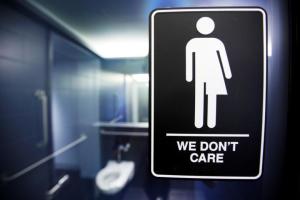How to be reconciled to God

While it is natural to assume that every human being is a member of God’s family, such flawed thinking is not rooted in reality. The truth is that man is separated from God because of sin and is in desperate need of being reconciled to his Creator. Our sins have actually produced a huge chasm between us and God.
The prophet Isaiah wrote, “Your iniquities have separated you from your God; your sins have hidden His face from you, so that He will not hear” (Isaiah 59:2).
When God’s people were persistently sinning against the Lord in Isaiah’s day, God told them that He would not hear their prayers until they repented. Today, if a Christian is living in deliberate sin, there must be repentance before any true prayer and genuine fellowship with God can resume.
So, what is it that ultimately allows sinful man to approach a holy God? Scripture reveals that God accepted animal sacrifices in the Old Testament on account of the sacrificial Lamb of God who would enter the world years later in Bethlehem, and ultimately be slain for our sins on the cross (see Hebrews 10:1-18).
You see, the death of Christ on the cross is what brought reconciliation between God and man.
Once Jesus arrived on the scene and began His earthly ministry, it became necessary to go directly through the Son in order to get to the Father. Jesus said, “I am the way and the truth and the life. No one comes to the Father except through me” (John 14:6).
The Messiah told the religious leaders of His day, “If you knew me, you would know my Father also” (John 8:19). Knowing Jesus is far better than being religious because it actually connects you to the Father in Heaven. Religion cannot reconcile you to God. The sacrifice of the sinless Savior was required to secure our reconciliation.
The Apostle Paul described how “God was reconciling the world to himself in Christ, not counting men’s sins against them” (2 Corinthians 5:19). Think of Paul’s description here as objective reconciliation. As with objective justification, Christ died for all. Everyone in the world has been reconciled and justified in an objective sense. Objective justification is expressed in the words of John the Baptist: “Look, the Lamb of God, who takes away the sin of the world” (John 1:29).
But the benefits of Christ’s atoning sacrifice on the cross are not applied to your soul personally until you actually believe the good news of the Gospel. Subjective reconciliation and subjective justification take place in your life when you trust Christ to forgive you. You are then reconciled to God and justified before God on a personal level. Prior to the personal application of Christ's forgiveness, you remain lost in your sins and on the path to perdition.
The believers in Rome had been reconciled to God objectively when “Christ died for sins once for all” (1 Peter 3:18), but they were not reconciled to God subjectively and personally until they accepted Jesus as the Messiah. Paul wrote to them: “For if, when we were God’s enemies, we were reconciled to him through the death of His Son, (objective reconciliation) how much more, having been reconciled, shall we be saved through His life! Not only is this so, but we also rejoice in God through our Lord Jesus Christ, through whom we have now received reconciliation” (subjective reconciliation) (Romans 5:10-11).
It is important to realize that nothing you could ever do can wash away even one of your sins. And without forgiveness, there is no reconciliation. You cannot be reconciled to God based on sincerity, morality or noble deeds.
If man’s efforts could bridge the gap between himself and God, then why did the Father send His only Son to suffer such an agonizing death on the cross as the payment for our sins? In other words, “If righteousness could be gained through the Law, Christ died for nothing” (Galatians 2:21).
Do you wrongly assume that Christ died for nothing, or do you correctly understand and believe that Jesus died for your sins because the Lord loves you and this was the only way you could be reconciled to God? Your answer to that question will reveal whether you are currently walking in spiritual darkness or in spiritual light.
In order to personally be reconciled to God, you will need to repent of your sins and trust Jesus to cleanse your soul. As you turn away from sin, simply pray: “Wash me Jesus with your precious blood.”
Paul wrote to believers: “In Him (Christ) we have redemption through His blood, the forgiveness of sins, in accordance with the riches of God’s grace” (Ephesians 1:7).
Personal redemption and personal reconciliation occur the moment a sinner receives the free gift of salvation (See Ephesians 2:8-9). It is actually very easy to be reconciled to God on a personal level. And the reason it is so easy to be saved, redeemed, justified, born again and forgiven is because it cost God so much.
How will you respond to Jesus? In faith, or unbelief? One approach brings personal reconciliation and Paradise, while the other leaves you separated from God and headed toward eternal misery in Hell.
“Whoever believes in the Son has eternal life, but whoever rejects the Son will not see life, for God’s wrath remains on him” (John 3:36).
If you will humble yourself at the foot of the cross and receive Jesus as your Lord and Savior, (see John 1:12) you can personally be reconciled to God today. “Humble yourself before the Lord, and He will lift you up” (James 4:10).
Dan Delzell is the pastor of Redeemer Lutheran Church in Papillion, Nebraska.



























